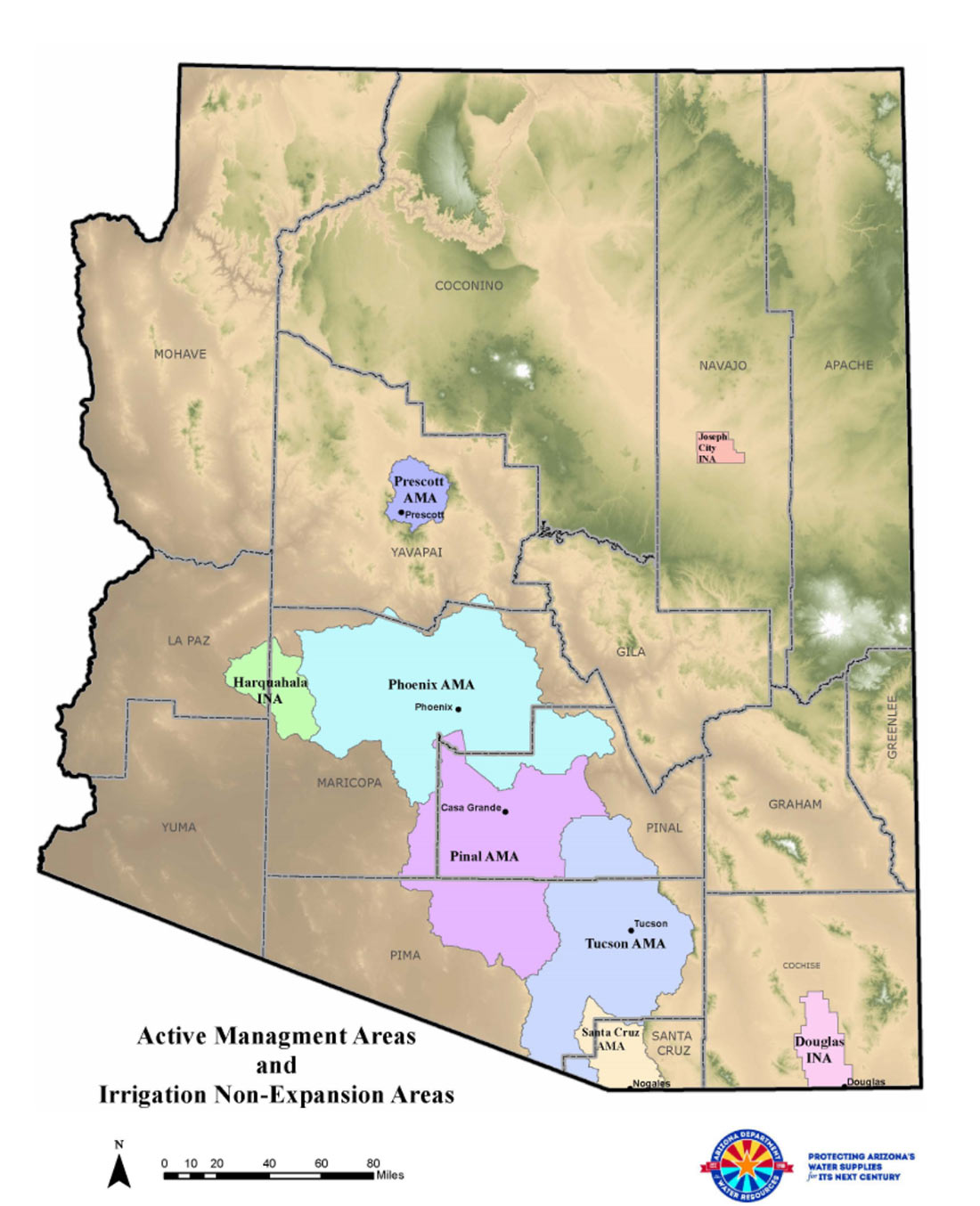 VIEW LARGER An Arizona Department of Water Resources map of Active Managment Areas in Arizona.
VIEW LARGER An Arizona Department of Water Resources map of Active Managment Areas in Arizona. On Thursday, the Arizona Department of Water Resources (ADWR) held its first informal stakeholder meeting to discuss the development of the Assured Water Supply ‘Agriculture to Urban Initiative’.
The Ag to Urban program is designed to support sustainable housing development that protects water resources for consumers amid ongoing Colorado River shortages.
Ben Bryce with ADWR said dwindling water supplies are creating significant difficulties for farmers, developers, and home builders.
“If done right, an ‘Ag to Urban’ concept could function within the protections of the assured water supply program while providing flexibility for new voluntary program,” Bryce said.
The initiative aims to convert high-water-use agriculture to low-water-use urban developments.
It is still in the planning stages, seeking input from stakeholders.
To participate in the program, applicants must have lands with an irrigation grandfathered right and must have irrigated those lands with groundwater in three of the past five years prior to relinquishment.
“The applicant’s land cannot already have an overlying certificate of Assured Water Supply,” Bryce said.
The Ag to Urban program is also a legislative priority for Republicans in the state legislature this year.
Last December, the ADWR presented proposed guardrails and a dashboard to the Governor's Water Policy Council to help stakeholders understand how different factors could shape the program’s impact on groundwater supplies.
In June, the ADWR outlined potential Ag to Urban concepts to the Council, as related legislation was being debated in the state legislature.
That legislation would have created an exemption from the physical availability requirements of the Assured Water Supply program, Bryce explained.
None of those bills were successful.
“Water savings, consumer protections and more stakeholder discussions were needed to ensure all relevant stakeholders were involved and all the issues were properly discussed,” Bryce said.

By submitting your comments, you hereby give AZPM the right to post your comments and potentially use them in any other form of media operated by this institution.